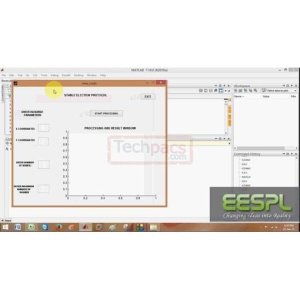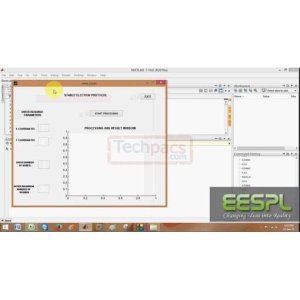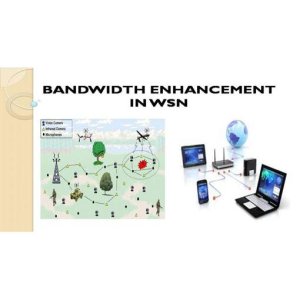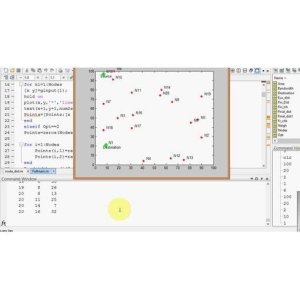MPDHD: Enhancing Handover Process Efficiency through ANFIS Algorithm in Dynamic Scenarios.
Problem Definition
The current literature suggests that Artificial Neural Networks (ANN) are a popular tool for making handover (HO) decisions in communication networks. However, it has been found that ANN may not always meet user preference metrics and network conditions efficiently due to their input dependency and lack of adaptability. Moreover, ANN is criticized for its characteristics such as requiring more processing time, being less sensitive, and having limited adjustability. These limitations result in inefficient HO processing, highlighting the need for a novel mechanism that can address these drawbacks and improve the efficiency of handover decisions in communication networks. By overcoming these challenges, the development of a more effective and adaptable solution for HO decisions is essential to enhance the overall performance and reliability of communication systems.
Objective
The objective of this study is to develop a more effective and adaptable solution for handover decisions in communication networks by combining fuzzy logic and neural network technologies. The proposed Multiple parameter dependency Handoff decision model (MPDHD) aims to address the limitations of existing Artificial Neural Networks (ANN) in terms of user preference metrics, network conditions, processing time, sensitivity, and adjustability. By incorporating parameters such as received signal strength indicator (RSSI), data rate, service cost, velocity of the mobile device, and network load, the proposed model seeks to improve the efficiency of handover decisions, particularly in dynamic scenarios with varying conditions. The goal is to enhance the overall performance and reliability of communication systems by providing a high-quality communication service for mobile subscribers and increasing traffic-carrying capacity.
Proposed Work
A novel approach is proposed in this paper which is the combination of fuzzy logic and neural network, Thus, in this hybrid model, the advantages of fuzzy logic and NN can be captured that can overcome the existing drawbacks. Also, to provide a high-quality communication service for mobile subscribers and to enhance a high traffic-carrying capacity when there are variations in traffic, network load must be paid attention. Therefore, in the proposed work another parameter i.e. load is also taken into account along with other previous parameters i.
e. received signal strength indicator (RSSI), data rate, service cost, velocity of the mobile device, load. Therefore, by implementing neural network and fuzzy logic algorithm and with respect to the aforementioned parameters an adaptive and efficient handover system: Multiple parameter dependency Handoff decision model (MPDHD) is achieved. In addition, in the previous work, the dynamic scenario has not been considered. However, it is possible that the results for dynamic scenarios can vary due to variation in the number of parameters and thus cannot give an efficient performance in all cases.
Therefore, in the proposed work, the dynamic scenario is considered, which is the main aim of this work. In this scenario, the efficiency of the proposed model for varying conditions can be analyzed and thus its performance efficiency can be demonstrated. In this scenario, the location of BS and number of users are considered to be dynamic.
Application Area for Industry
This project can be applied in various industrial sectors such as telecommunications, manufacturing, transportation, and energy. In the telecommunications sector, the proposed solution can address the challenge of efficient handover processing in mobile communication systems, leading to improved quality of service for subscribers and increased network capacity to handle fluctuations in traffic. In manufacturing, the integration of fuzzy logic and neural network algorithms can optimize production processes by making data-driven decisions based on multiple parameters, enhancing productivity and reducing downtime. In transportation, the adaptive handover system can improve connectivity for moving vehicles by dynamically adjusting network configurations based on changing conditions, ensuring seamless communication for passengers and operators. In the energy sector, the implementation of the MPDHD model can optimize resource allocation and energy consumption in smart grid systems, leading to improved efficiency and cost savings.
Overall, the benefits of implementing these solutions include enhanced performance, increased adaptability, and improved decision-making processes tailored to specific industry requirements and challenges.
Application Area for Academics
The proposed project can greatly enrich academic research, education, and training in the field of wireless communication systems. By combining fuzzy logic and neural network techniques in the Multiple parameter dependency Handoff decision model (MPDHD), researchers, MTech students, and PHD scholars can explore innovative research methods for improving handover decision-making processes in mobile networks. This hybrid model not only overcomes the limitations of traditional artificial neural networks but also takes into account additional parameters such as load, RSSI, data rate, service cost, and velocity of mobile devices to make adaptive and efficient handover decisions.
This project has the potential to advance research in developing more efficient and reliable communication systems for mobile subscribers, especially in high traffic scenarios. By incorporating dynamic scenarios into the proposed model, researchers can analyze its performance under varying conditions, such as changes in the number of users and the location of base stations.
This will provide valuable insights into the effectiveness of the MPDHD model in real-world situations and contribute to the development of more robust handover mechanisms.
By utilizing the ANFIS algorithm in this project, researchers can explore the capabilities of adaptive neuro-fuzzy inference systems for enhancing handover decision-making processes in mobile networks. The code and literature generated from this project can serve as a valuable resource for academics and students interested in applying machine learning techniques to improve wireless communication systems.
In conclusion, the proposed project not only addresses the existing limitations of artificial neural networks in handover decision-making but also provides a platform for conducting advanced research in the field of wireless communication systems. The insights gained from this project can help shape future research directions and contribute to the development of more efficient and adaptable communication systems.
Algorithms Used
ANFIS algorithm is used in this project for developing a novel approach that combines fuzzy logic and neural network techniques. The hybrid model created by this combination aims to capture the advantages of both fuzzy logic and NN, allowing for the overcoming of existing drawbacks. The proposed work involves the development of an adaptive and efficient handover system, called Multiple Parameter Dependency Handoff Decision Model (MPDHD). This model considers parameters such as received signal strength indicator (RSSI), data rate, service cost, velocity of mobile device, and load to provide high-quality communication services for mobile subscribers and enhance traffic-carrying capacity during variations in network load. Additionally, the proposed work accounts for dynamic scenarios by considering varying conditions such as the dynamic location of base stations and the number of users.
By implementing the ANFIS algorithm, the efficiency and performance of the proposed model under dynamic scenarios can be analyzed and demonstrated.
Keywords
wireless networks, handover processing, ANFIS, adaptive neuro-fuzzy inference system, multi-parameter consideration, intelligent handover, network optimization, wireless communication, handover decision-making, handover algorithms, network performance, handover prediction, fuzzy logic, network parameters, handover management, ANN, novel mechanism, high quality communication service, high traffic-carrying capacity, received signal strength indicator (RSSI), data rate, service cost, velocity of mobile device, load, Multiple parameter dependency Handoff decision model (MPDHD), dynamic scenario, location of BS, number of users, neural network, fuzzy logic algorithm, online visibility, SEO-optimized keywords.
SEO Tags
wireless networks, handover processing, ANFIS, adaptive neuro-fuzzy inference system, multi-parameter consideration, intelligent handover, network optimization, wireless communication, handover decision-making, handover algorithms, network performance, handover prediction, fuzzy logic, network parameters, handover management, neural networks, fuzzy logic, handoff decision model, signal strength indicator, data rate, service cost, mobile velocity, load balancing, dynamic scenario, location of base station, number of users, mobile subscribers, communication service, traffic variations, network load, high traffic-carrying capacity, adaptive system, efficient handover, network conditions, PHD research, MTech project, research scholar.
| Shipping Cost |
|
No reviews found!



















































No comments found for this product. Be the first to comment!